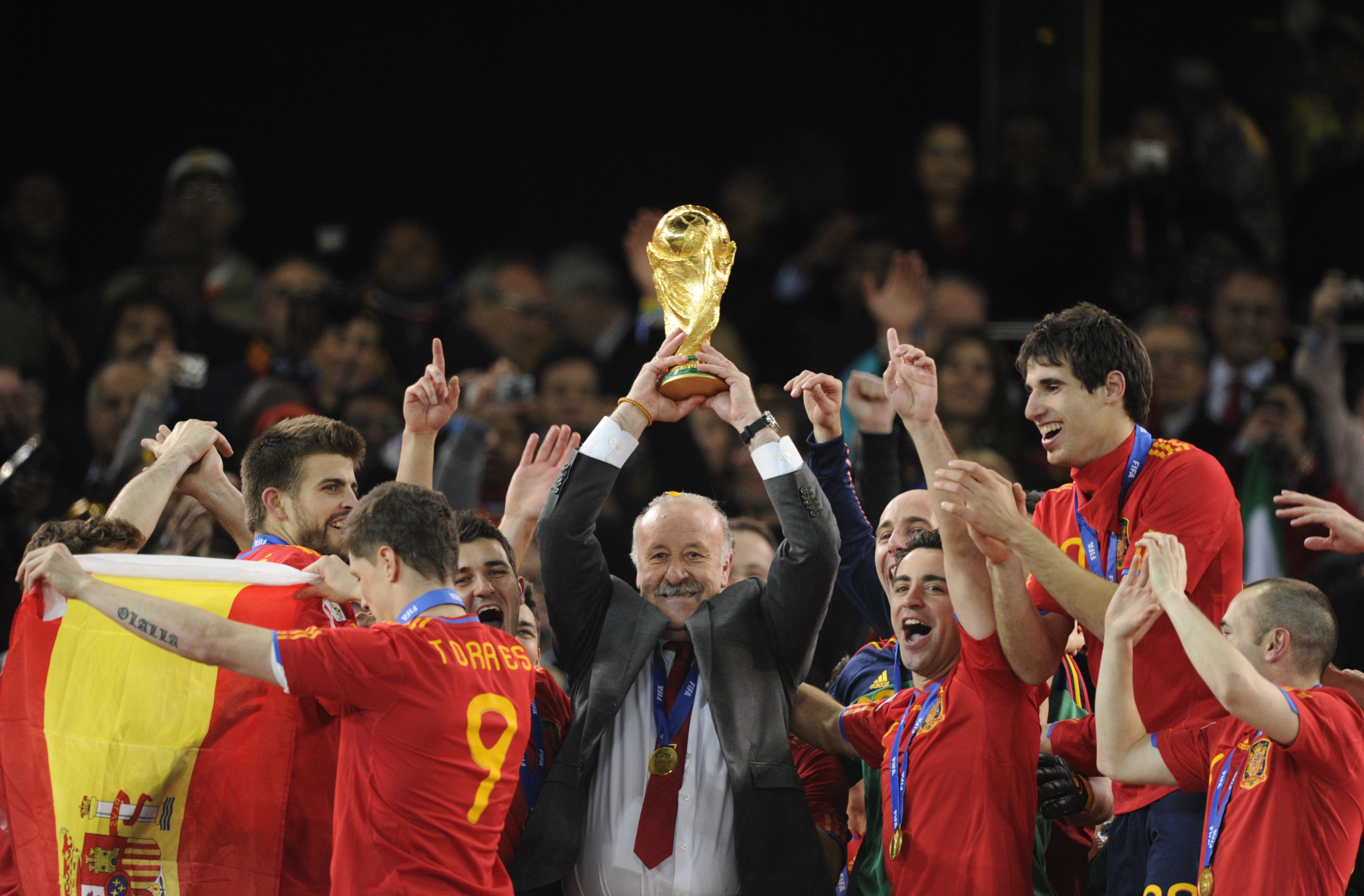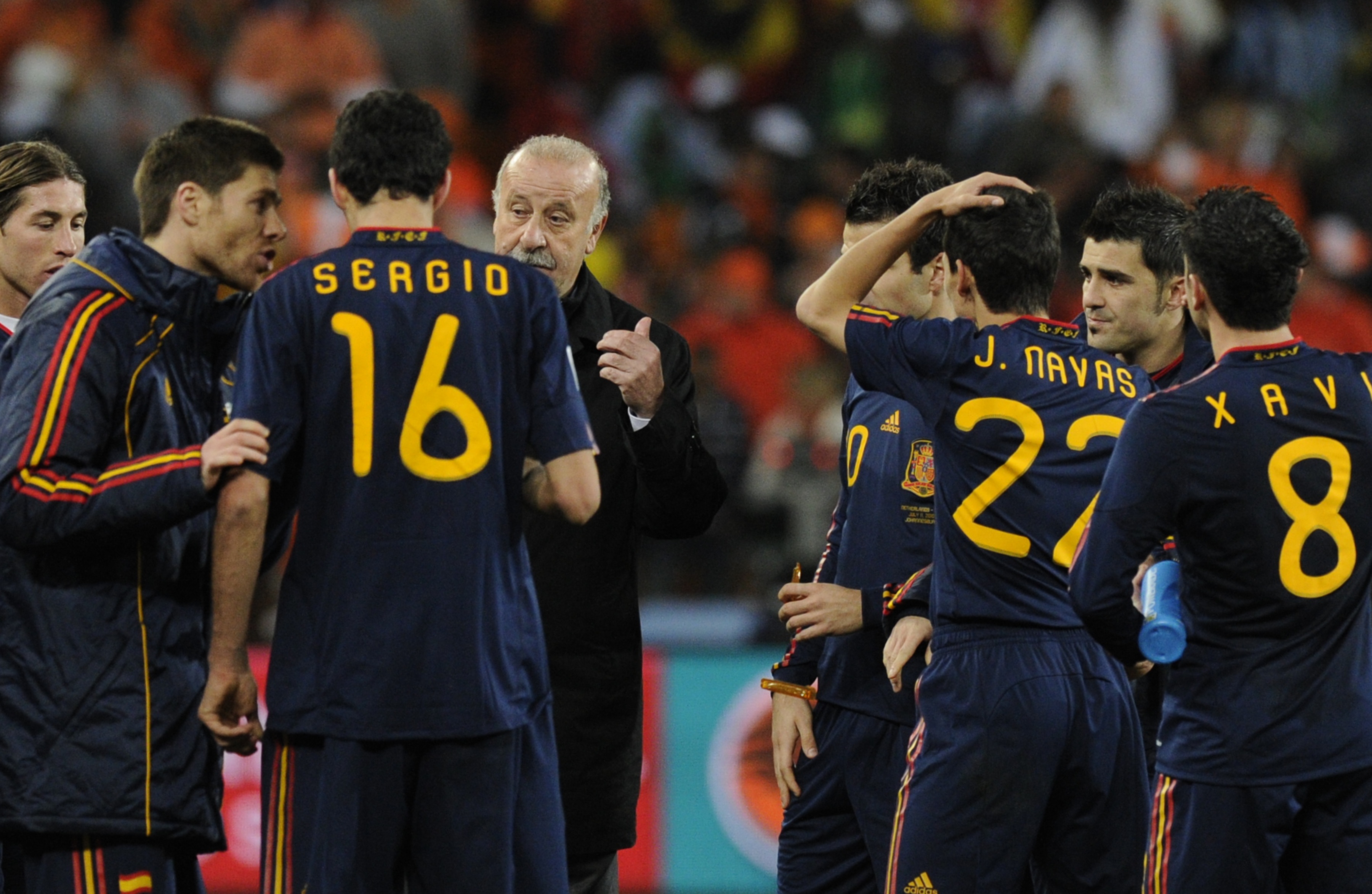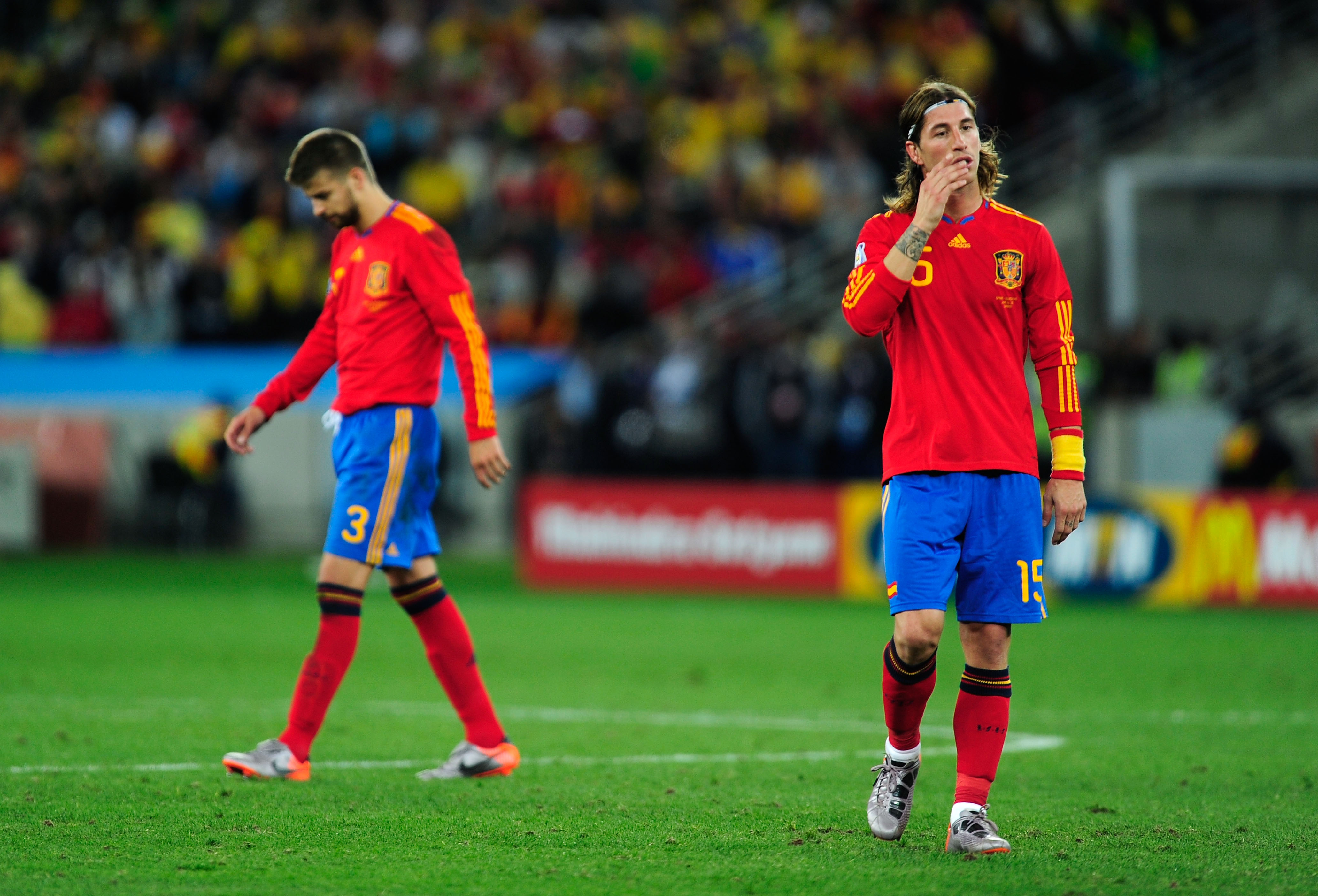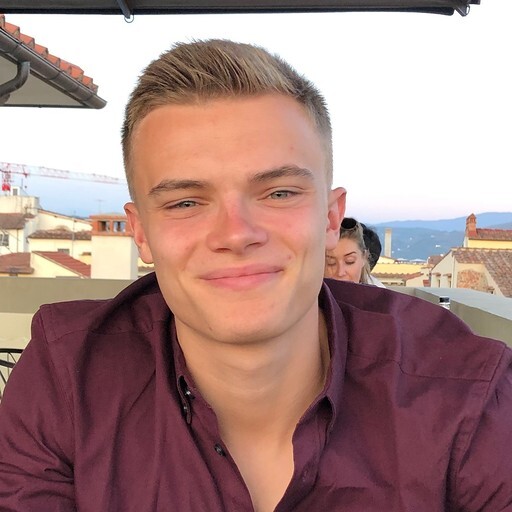Vicente Del Bosque reveals what he told his Spain players before winning the 2010 World Cup final
The Spaniard opted for an impassioned speech over tactic talk

You'd have thought managing arguably one of the greatest national teams to have ever played football would be easy. After all, a side complete with some of the game's most technically gifted players in Xavi, Iniesta and Xabi Alonso, coupled with David Villa's goals and the defensive capabilities of Sergio Ramos, Carlos Puyol and Gerard Pique, should make this management lark simple, no?
Well, it's all well and good having the best players, but before a World Cup final it's anything but.
Replacing Euro 2008 winning manager Luis Aragones, Vicente Del Bosque took the hot seat in his first international job with Spain after that successful tournament. Inevitably facing plenty of pressure to replicate what his predecessor had achieved, this time at a World Cup, Del Bosque chose to appeal to his team's emotions on the night of the 2010 World Cup final, rather than focusing on tactical set ups.
"I told them that this was the game of our lives," Del Bosque told FourFourTwo in the latest issue, a World Cup special available to buy. "We were football romantics, and I knew we were going to have the opportunity to experience a beautiful night, unique for many people. I told them that it was not a war, but a sport, and that we could win or lose.
"We had a lot of people supporting us, a whole country, and above all a lot of young people to whom we could do a favour, after many years in which it was just normal for La Roja to lose. Spain was an advanced, modern country, and football helped us to promote growth.

"We already knew the Netherlands well – we’d prepared the game to counteract players like Arjen Robben and Wesley Sneijder. We were true to what we were doing until the end, and we also had that bit of luck, like Casillas’ save with his foot from Robben, that you need to have in a World Cup to win it."
However, it wasn't all plain sailing for Del Bosque.
Get FourFourTwo Newsletter
The best features, fun and footballing quizzes, straight to your inbox every week.
With Real Madrid's and Barcelona's rivalry at a nadir, due to the overwhelming quality both sides possessed, healing rifts between players became common for the manager - most notably between defensive duo Sergio Ramos and Gerard Pique.
In order to ensure the pair didn't let their disdain of each other get in the way of international glory, Del Bosque made them realise they were both essential figures who could either propel or hinder Spain's chances in the tournament.
Del Bosque explained to FFT what he told them: "That they were important men for the national team, and that it was essential that any personal problems that may have arisen as a result of the rivalry between Real Madrid and Barcelona, which at the time was unnecessarily taken to extremes, were soon sorted out.

"I spoke to more people, but it’s true that with Sergio Ramos and Gerard Pique, we met on occasion to unite the dressing room. I also did it with Iker Casillas and Xavi, or Xabi Alonso and Sergio Busquets, who also shared the same position on the pitch.
"The proof that we managed to join forces is that Casillas and Xavi were awarded the Prince of Asturias Award in recognition of the values of friendship and team spirit. It meant that together, we had remedied a situation that had become entrenched."
As Del Bosque alludes to, Spain's starting XI in the 2010 World Cup final comprised of three Real Madrid players and seven from Barcelona. Addressing this potential problem became essential, otherwise it could have proved Spain's downfall.
"The situation of the clubs was mixed up with that of the Spanish national team, and that’s dangerous."

Ryan is a staff writer for FourFourTwo, joining the team full-time in October 2022. He first joined Future in December 2020, working across FourFourTwo, Golf Monthly, Rugby World and Advnture's websites, before eventually earning himself a position with FourFourTwo permanently. After graduating from Cardiff University with a degree in Journalism and Communications, Ryan earned a NCTJ qualification to further develop as a writer while a Trainee News Writer at Future.
